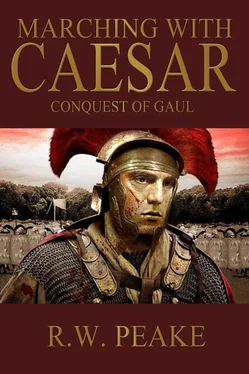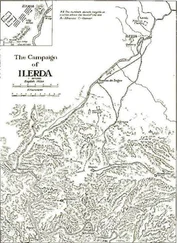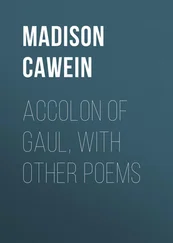R. Peake - Marching With Caesar - Conquest of Gaul
Здесь есть возможность читать онлайн «R. Peake - Marching With Caesar - Conquest of Gaul» весь текст электронной книги совершенно бесплатно (целиком полную версию без сокращений). В некоторых случаях можно слушать аудио, скачать через торрент в формате fb2 и присутствует краткое содержание. Жанр: Исторические приключения, на английском языке. Описание произведения, (предисловие) а так же отзывы посетителей доступны на портале библиотеки ЛибКат.
- Название:Marching With Caesar: Conquest of Gaul
- Автор:
- Жанр:
- Год:неизвестен
- ISBN:нет данных
- Рейтинг книги:3 / 5. Голосов: 1
-
Избранное:Добавить в избранное
- Отзывы:
-
Ваша оценка:
- 60
- 1
- 2
- 3
- 4
- 5
Marching With Caesar: Conquest of Gaul: краткое содержание, описание и аннотация
Предлагаем к чтению аннотацию, описание, краткое содержание или предисловие (зависит от того, что написал сам автор книги «Marching With Caesar: Conquest of Gaul»). Если вы не нашли необходимую информацию о книге — напишите в комментариях, мы постараемся отыскать её.
Marching With Caesar: Conquest of Gaul — читать онлайн бесплатно полную книгу (весь текст) целиком
Ниже представлен текст книги, разбитый по страницам. Система сохранения места последней прочитанной страницы, позволяет с удобством читать онлайн бесплатно книгу «Marching With Caesar: Conquest of Gaul», без необходимости каждый раз заново искать на чём Вы остановились. Поставьте закладку, и сможете в любой момент перейти на страницу, на которой закончили чтение.
Интервал:
Закладка:
When the sun came up the next morning, we were greeted by the sight of more than 3,000 bodies, those of the dead mingling with those that would be joining them shortly, once we moved among them and finished them off. The treachery of the Aduatuci sealed their fate, despite the pleas yet again from their elders, although this time they did it from the walls, not daring to show themselves in person after the attempt the night before. They were merely prolonging their fate, however, Caesar giving orders to loot the town and round up the remaining people. The Aduatuci did not resist, surprising me somewhat, although putting myself in their place, I guess they realized that if they resisted, they would all be put to death. Still, they had to know what awaited them in a lifetime of slavery, and it is this point of view that, despite witnessing it many times, I have never understood. For myself, and most of the Romans I have known, the idea of slavery is so horrific that we would prefer to die, preferably with a sword in hand, or at least that is what we say to ourselves and to each other. And when I was young I accepted that as an article of faith, not only about myself but my fellow Romans, yet now that I am at least older, if not wiser, I sometimes wonder if it is only because we never had to face choosing between life, even in an unpleasant form, or the finality of death. Diocles and I have had many debates about this question, and I bow to his gift of persuasion to admit that at least I now will entertain an idea that I once would have rejected out of hand.
(My master and friend does not do himself enough credit. He is correct in saying that we have discussed this at length many times, but I do not think it was due to any persuasive measures on my part that have brought him to this relatively recent viewpoint. I do think that Titus has gained much wisdom over the years, harvested from all of the battlefields and all of his contact with men from all parts of the world. He is very much a man of the world now, although he would threaten to beat me if he heard me describe him so. He is not quite the simple old soldier that he likes to portray himself.)
Nevertheless, we were given the town to sack, making Vibius and admittedly everyone else happy to see that something good came from all their sweat and toil, although I think the Aduatuci did not see it that way. However they had rolled the dice, and they lost, so as far as I was concerned, they had no right to bemoan their fate, although it did not stop them from doing just that. Caesar sold the entire remaining population of the town, some 53,000 people, in one lot, although he did decree that more than one of the slave traders who followed us around execute the sale so that the profits were shared. All the wailing that ensued was tedious, and admittedly somewhat heart wrenching, as we supervised the process of shackling the Aduatuci, their first introduction to their new lives. I was just thankful that I would not be present when they were sold and families were torn apart, each of them going to separate parts of the Empire, or Republic as we thought of it then. Still, it was not a pleasant task, and one that we were thankful when it was over, though once it was done, the campaign was over. The Belgae were subdued, if only for the moment as it turned out.
Chapter 8- The Veneti
All activity did not cease with the fall of the Aduatuci, however. Caesar, with the help of his Legions, had managed to open up a vast new territory for trade, and it was with that in mind that he sent one of the Tribunes, Servius Galba along with the 12th Legion, to open up a new route through the mountains leading to the Province. While we were subduing the Aduatuci, Publius Crassus was sent to the coast of Gaul, along with the 7th, to subdue the tribes of the Veneti, Venelli, Ausuvi and some others I forget, which he did with great success. Galba was not so fortunate, and it is with a soldier’s superstition that I say that I often wonder if it had been different if he had taken a Legion other than the 12th. They were already the most under strength Legion of the army to begin with, and while I will not belabor their spotty record, it would be a lie to say that Galba’s failure did not give even more credence to the belief that the Legion was cursed. As for the rest of the army, the 7th stayed with Crassus and wintered to the southwest. The rest of us were sent into winter quarters in various parts of the region of the Belgae, in groups of two Legions, and we were sent back to the spot where the Sabis and Mosa intersected. Meanwhile, Caesar left us once more, this time to Illyricum, which was his other province, one he had yet to set foot in, despite it going on the third year of his governorship. What we did to the Belgae was met with widespread rejoicing, and Caesar was awarded a period of fifteen days of thanksgiving in Rome, which to that time had never happened before. Most of the army was proud that he was receiving the accolades that he was, though not everyone felt that way of course. When the thanksgiving was announced at one of our morning formations, I mentally counted the heartbeats before Vibius started his grumbling once we were dismissed. I do not believe I got past ten.
“Good for him that he’s getting all the glory, but we’re the reason he’s getting it,” Vibius declared as we walked back to our area. “And what do we get for it? Nothing, that’s what.”
As much as I did not wish to argue with Vibius, I could not let that go unchallenged. “ Gerrae ! What do you call the fact that he’s splitting the proceeds of those slaves with the entire army?” I argued. “He didn’t have to do that, but he did.”
“I’ll give you that,” Vibius admitted grudgingly, “but there’s other ways to show your gratitude, isn’t there?”
“Like what?”
“I don’t know, but I know there’s something he could do,” Vibius retorted.
I knew better than to keep arguing about it, so I just sighed and rolled my eyes. Some things would never change, I thought as we continued in silence back to start our workday.
The other event of note was that Caesar, Pompey and Crassus renewed their agreement, which some people called the Three Headed Monster. The Consuls for that year were Gnaeus Marcellinus and Lucius Philippus, and it was now the beginning of the third year of campaigning in Gaul. The winter passed uneventfully, at least as far as we were concerned, although there were elements among the Gallic tribes that were very busy indeed, most notably our friends the Belgae. They had not taken their defeat well, and were even now plotting revenge, yet they knew they could not beat us without help, so one more time Gauls looked across the Rhenus to their more savage cousins for help. The news of their plotting made its way to Caesar’s ears down in Illyricum, rightly causing him concern. As if this was not enough trouble, at the same time down to the south, Crassus and the 7th were running into problems with the Veneti, that tribe going so far as to seize two agents sent by Crassus to arrange for grain to supply the Legion. There were whispers of uprisings springing up all over, forcing Caesar to move from Illyricum the instant spring arrived. Deeming the situation in the south to be the most extreme since the Veneti were openly opposing young Crassus and Rome, Caesar hurried to that area, making his headquarters in what is now known as Portus Namnetus, though it was still known as Namneti for the tribe that founded it at that time. Labienus was sent with about half the cavalry up to a spot on the Mosella (Moselle) River, which empties into the Rhenus, doing such an excellent job of picking a spot for a camp that it is now known as the town of Augusta Trevorum. Quintus Sabinus was sent with the 8th, 9th and 14th Legions to the northwest of Portus Namnetus into the territories of the Curiosolites, Venelli, and the Luxovii, with orders to stop them from joining with the Veneti. The rest of the army, with the exception of two Cohorts of the 11th, who were sent to Crassus as reinforcements, stayed with Caesar at Portus Namnetus while he planned the campaign. The future traitor Decimus Brutus was given the task of both building and acquiring a fleet, since the Veneti were a seagoing tribe whose strength was in their ships. Caesar worked with his usual speed, and we were barely arrived in Portus Namnetus from our winter camp when we were given orders to march. The distance to the territory of the Veneti was perhaps 50 miles, a distance that normally could be done in a Caesar-paced two days. However, we quickly discovered that the Veneti possessed a secret ally in the terrain. It was flat enough, but after the first day’s march on our move towards the coast, we had to make several halts because our line of travel would have taken us into a tidal marsh, or an estuary of some sort. It became especially bad after we crossed a river that marked the boundary to their territory, where the ground was soft and spongy, the wagons finding the going hard as their heavy load pressed them into the turf. Caesar planned on his usual speed to surprise the Veneti, except it seemed that the earth itself was conspiring against us.
Читать дальшеИнтервал:
Закладка:
Похожие книги на «Marching With Caesar: Conquest of Gaul»
Представляем Вашему вниманию похожие книги на «Marching With Caesar: Conquest of Gaul» списком для выбора. Мы отобрали схожую по названию и смыслу литературу в надежде предоставить читателям больше вариантов отыскать новые, интересные, ещё непрочитанные произведения.
Обсуждение, отзывы о книге «Marching With Caesar: Conquest of Gaul» и просто собственные мнения читателей. Оставьте ваши комментарии, напишите, что Вы думаете о произведении, его смысле или главных героях. Укажите что конкретно понравилось, а что нет, и почему Вы так считаете.












